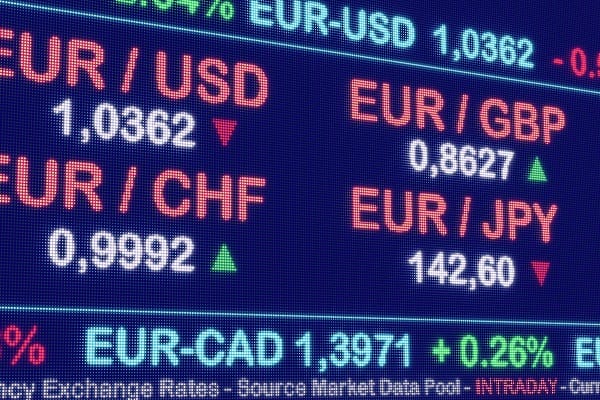Euro witnessed a series of declines against the US dollar since the early morning hours, leading it to losses of 0.15%, reaching the level of 1.09346 at the peak of the declines at approximately 8:00 AM GMT, before recovering slightly and mitigating its losses.
It seems that the euro’s recovery was accompanied by more indicators about consumer sentiment in Germany, which saw some signs of improvement. Today we saw the GfK Consumer Climate report for November.
While the GfK Consumer Climate index stopped the series of declines extending for three consecutive months and recorded a reading of -27.8 for the current month of November, which was higher than expectations of -28.2.
The relative stability in German consumer sentiment comes after a previous series of data that indicated a continued, albeit slow and gradual, return to institutional investor and business sentiment, in addition to more signs about the strength of the banking system across the euro area.
The slight improvement in sentiment came with an increase in the willingness to buy and a decrease in the willingness to save among consumers. On the other hand, we saw a continued decline in income expectations in light of high inflation and uncertainty.
While the report stated that one-third of consumers feel uncertain due to the economic situation and geopolitical concerns, which in turn continue to put pressure on consumers’ willingness to buy. Although sentiment has improved slightly and significantly this month compared to what it was a year ago, it is still very low.
The sentiment to save was also a very important indicator for measuring consumers’ uncertainty, according to what Rolf Bürkl, an expert at the Nuremberg Institute for Market Decisions (NIM), said. The expert also stressed that this recovery in sentiment is still very low and does not reflect any sign of a sustainable recovery in the coming months.
Also, economic expectations remained almost unchanged this month compared to last month, with the German consumer not seeing any signs of an upswing in the economy in the foreseeable future, according to today’s report.
The trend of improving consumer sentiment is particularly important. The strength of the labor market and the continued ability of households to spend were among the most important factors that ensured the stability of the banking system in the euro area, according to what was mentioned in the Financial Stability Review (FSR) report last week, and what Christine Lagarde spoke about earlier this month as well.
Accordingly, I believe that the possibility of slipping into recession is not very low now, but the region’s economy in various sectors is still fragile, although it is still trying to stop the continuous contraction over the past three months in various economic activities.
The upward fears of inflation with any return to sharply rising energy prices or worsening of military conflicts still threaten consumer sentiment and the health of the region’s economy, which is confirmed by the statements of monetary policy makers and the aforementioned reports as well.
Despite fears that inflation will rise again, it is heading towards its target levels in the near future, which may in turn boost consumer sentiment. This is what the latest reading of the producer price index in Germany also indicated, and it is what the next reading of the consumer price index will try to confirm this week as well.


Leave a Comment